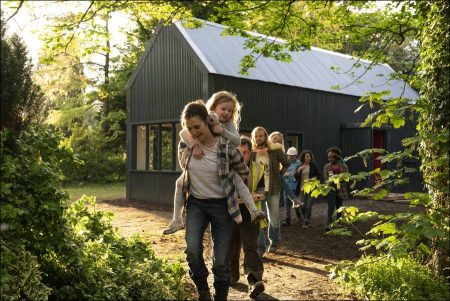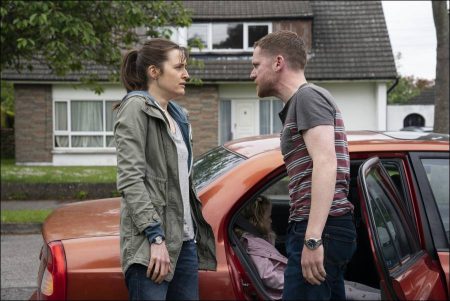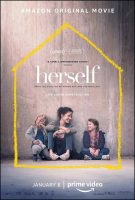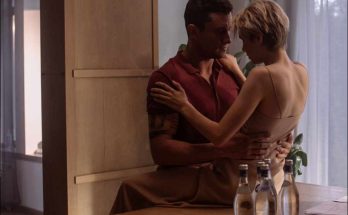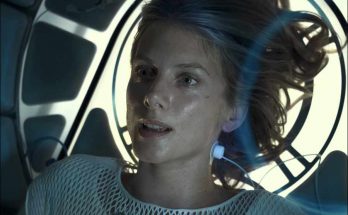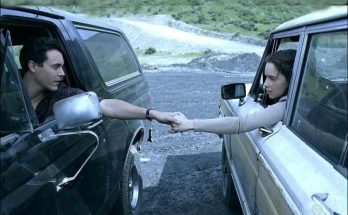Herself Movie Storyline. Sandra (Clare Dunne), an Irish single mother of two young girls, faces a dire situation. An attack by her abusive ex-husband and a housing crisis in Dublin leave her living in fear and unable to find a new home. Temporarily living with her two daughters in a cramped hotel room and battling a system that refuses to help her, Sandra is determined to create some stability and security for the three of them. Seeing no other options, she decides to build her own house, literally and metaphorically pouring the foundation of her own future.
Phyllida Lloyd (Mamma Mia!, The Iron Lady) directs this affecting and inspiring story with important universal and timely ideas at its core—those of generosity and community in all its forms. Clare Dunne, primarily a theatre actress, co-wrote the script and stars as Sandra, commanding the screen. Herself creates a complex and optimistic portrait of a woman fighting for her dignity as she rebuilds a life for herself and her daughters.
Herself is a 2020 drama film directed by Phyllida Lloyd, from a screenplay by Malcolm Campbell and Clare Dunne. The film stars Dunne, Harriet Walter and Conleth Hill. Herself had its world premiere at the Sundance Film Festival on 24 January 2020 and was released in the United States in a limited release on 30 December 2020, followed by digital streaming on Amazon Prime Video on 8 January 2021 by Amazon Studios.
Film Review for Herself
In 2008, opera director Phyllida Lloyd’s pop-cornball big-screen debut, “Mamma Mia!,” more than earned its exclamation point, grossing upwards of $600 million worldwide. Three years later, her more serious-minded follow-up, “The Iron Lady,” earned Meryl Streep an Oscar. Most people would agree that was a not-too-shabby start for a helmer of any gender. But instead of making another movie, Lloyd went back to the stage, directing a trio of statement-making all-female Shakespeare productions.
Still, one wonders whether Lloyd’s sabbatical from cinema was by her own choice or by forces that seem none too keen on privileging women’s stories. Now she’s back with a movie called “Herself,” which is head-and-shoulders the strongest of the 20 Sundance films I’ve seen so far. It’s small and stars no one that anyone in Hollywood would consider “bankable,” but I’m convinced this inspirational Dublin-set drama could go all the way: a timely, empowering story about a battered wife who builds her own house, and the decent folks who come to her aid in that endeavor. Don’t be surprised if people are still talking about “Herself” this time next year, when Lloyd could be the sixth woman to break the Oscars’ glass ceiling — that is, assuming the right distributor recognizes the niche this film fills, and how brilliantly Lloyd does it.
The film’s setup could hardly be simpler: Sandra (Clare Dunne) has two radiant daughters (Molly McCann and Ruby Rose O’Hara, both totally believable) and a controlling husband, Gary (Ian Lloyd Anderson), who mistakes possession for affection, using force to keep his family together. Men like Gary are a cliché — which isn’t a slight against the screenplay (which Dunne co-wrote with “Ackley Bridge” creator Malcolm Campbell) but an acknowledgment that abusive personalities are nothing if not predictable. Lloyd doesn’t have to show every blow Gary lays on his wife for us to get the picture, because so many of us have known — if not necessarily been struck by — the likes of him.
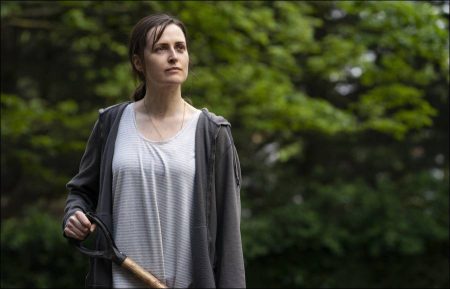
Instead, she reveals his attack in fragments, reminders woven through her withdrawal and recovery, sparing a crucial piece of information for flashbacks. Turns out, we’re not the only witness to Gary’s brutality, as he stomps on Sandra’s hand after discovering the stash of money she’d been saving to get away from him. Much later in the film, Sandra will be asked in court why she didn’t leave him sooner. Her response — which begins, “Ask better questions,” swiftly building to a rousing monologue — challenges a society where the inertia working against women trapped in bad marriages can be mind-boggling.
Sandra’s escape — with her 6- and 8-year-old girls in tow — recalls a pair of exceptional films by French director Xavier Legrand, the Oscar-nominated “Just Before Losing Everything” and his César-winning follow-up feature “Custody,” both about a woman in a very similar position to Sandra’s. There are similarities, too, to the work of Andrea Arnold (“Fish Tank”) and Lynne Ramsay (“We Need to Talk About Kevin”), although Lloyd has a more accessible style than all of the above. The best analogy might be a less manipulative version of Ken Loach’s “I, Daniel Blake,” with a #MeToo angle to help the film’s touch-a-nerve relevance translate to American shores.
What’s unique to Ireland — but still interesting to outsiders — is how the system deals with such cases. The police are called and Sandra’s temporarily housed in an airport hotel she’s obliged to enter through the rear, since management feels their paying guests might be put off by the lower-class likes of her. It’s humiliating, but the best option while Sandra holds tight for Ireland’s social housing to help her find something more permanent — a program with a three-year waiting list.
In the meantime, the threat that Gary could retaliate or do something to endanger her kids is intense, but scarier still is the emotional hold that such men have over their partners. Their tempers can be deadly, but their basset-eyed contrition is no less dangerous. Apologies follow outbursts as they turn on the charm, and when one loves a partner with the capacity to swing between such extremes, it can be all but impossible to break free — especially in an economy where a woman like Sandra already has to work two jobs: She cleans tables at a Dublin bar and assists a strong-willed doctor (Harriet Walter, like Dunne, an actor whom Lloyd has also directed onstage) recovering from a broken hip.
A few of the details might be a bit clunky, or else too convenient for those who seek subtlety, but Sandra’s situation starts to turn around when Walter’s character, Peggy, stumbles upon a how-to video Sandra had been watching on her laptop (she has no internet access of her own), instructing do-it-yourself types in how to build a modest home of their own for just 35,000 Euros (about $38,000). Of course, first they need to find a small plot of land, which Peggy happens to have available behind her own house.
It practically goes without saying that not everyone in Sandra’s position is lucky enough to have a friend who’d offer such an alternative. Sandra’s mother worked for Peggy previously, so her loyalty reaches back years, withstanding even the skepticism of her daughter (Rebecca O’Mara). But “Herself” believes in fundamental human goodness. Many filmmakers mistakenly think that exploiting tragedy is the way to jerk tears from their audience, when in fact, gestures of spontaneous kindness shown by near-strangers can be most moving — something Lloyd understands, boosting the positive energy with anthems like “Chandelier” and “Bulletproof.”
The film’s title may suggest that Sandra does it alone, but in truth, she couldn’t succeed without the support of others: a skeptical but open-minded contractor named Aido (Conleth Hill); his helpful son Francis (Daniel Ryan), who has Down syndrome; Rosa, a single mother (Anita Petry) from her kids’ school; and a studly carpenter (Dmitry Vinokurov) whom the film is wise enough not to treat as a love interest — even if his presence demonstrates that not all men are like Gary.
What Sandra’s trying to do doesn’t come easy, and she has trouble at times managing the stress. The obstacles can sometimes feel so enormous that each bit of encouragement she receives sends waves of (well-earned) positivity through the audience. If the story sounds tiny, think of it instead as a kind of metaphor for all the single women struggling against a system that’s tilted against them — which is as true today of Ireland as it is of the film industry, and the world at large. When the patriarchy fails, sometimes a woman has to take matters into her own hands.
Herself (2021)
Directed by: Phyllida Lloyd
Starring: Clare Dunne, Harriet Walter, Conleth Hill, Molly McCann, Ruby Rose O’Hara, Cathy Belton, Rebecca O’Mara, Ericka Roe, Ian Lloyd Anderson, Sean Duggan, Aaron Lockhart, Anita Petry
Screenplay by: Clare Dunne, Malcolm Campbell
Production Design by: Tamara Conboy
Cinematography by: Tom Comerford
Film Editing by: Rebecca Lloyd
Costume Design by: Consolata Boyle
Set Decoration by: Riad Karim
Art Direction by: Nenazoma McNamee
Music by: Natalie Holt
MPAA Rating: R for language and some domestic violence.
Distributed by: Amazon Studios
Release Date: January 24, 2020 (Sundance), December 30, 2020 (United States)
Views: 62
